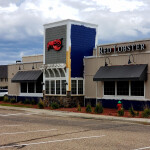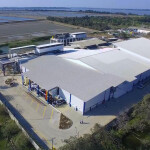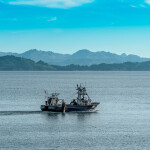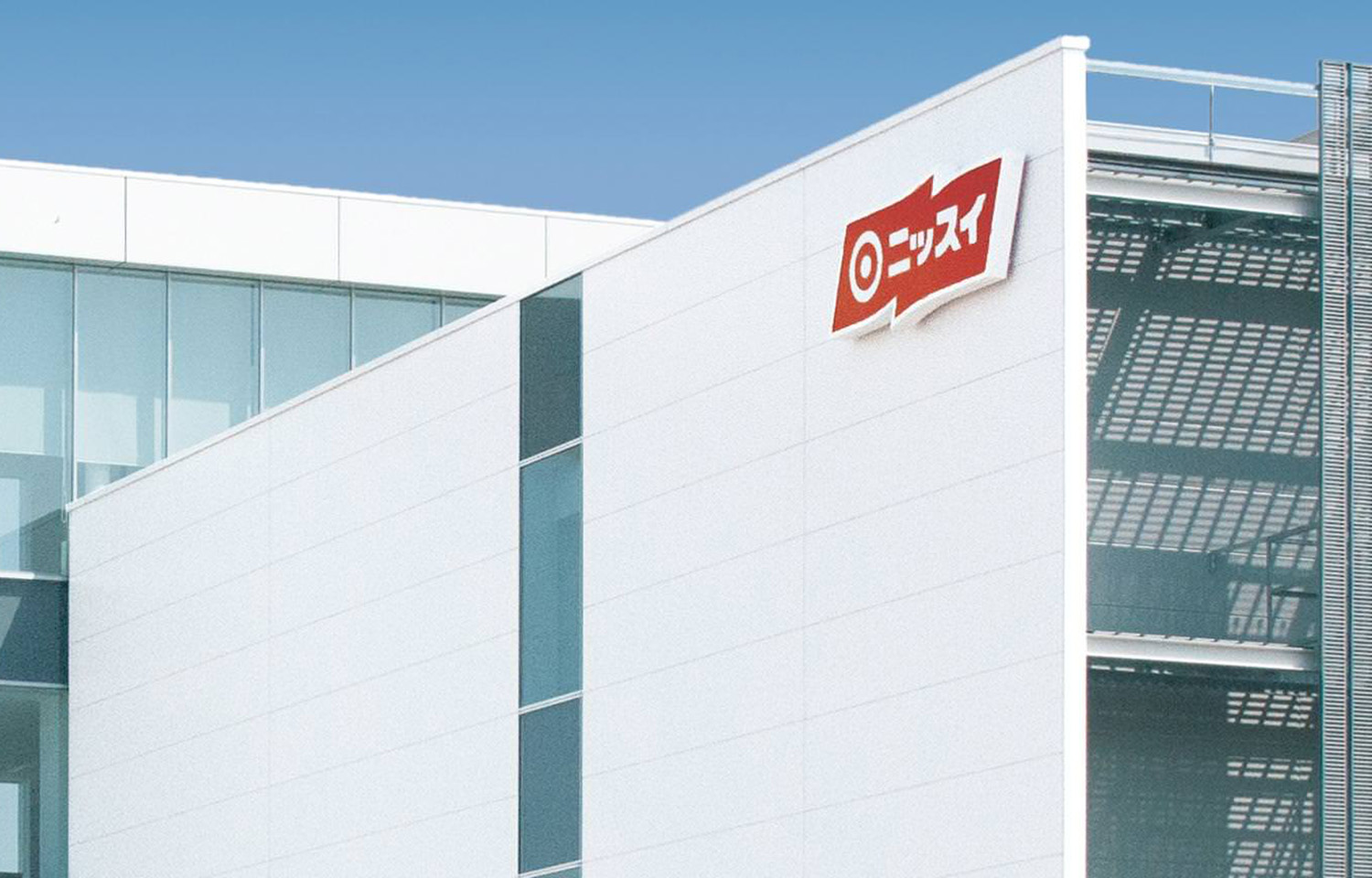Japanese seafood conglomerate Nissui recorded an 8.2 percent bump in sales and a 21.1 percent increase in operating profit in its 2023 fiscal year, which ended 31 March 2024.
Nissui’s net sales in FY 2023 reached JPY 831.3 billion (USD 5.3 billion, EUR 4.9 billion), and its operating profit hit JPY 29.7 billion (USD 189.9 billion, EUR 175.5 billion). Its ordinary profit rose 15.1 percent to JPY 32 billion (USD 204.6 million, EUR 189.1 million), and its profit attributable to the owners of the parent company rose 12.3 percent to JPY 23.9 billion (USD 152.8 million, EUR 141.2 million).
“For the company and its group, the Food Products business saw the positive effects of domestic and international increasing sales prices and decreasing raw material prices, resulting in a significant profit rise,” Nissui said. “In the Marine Products business, profit decreased as the market prices of our main products, such as salmon and surimi, decreased in Japan and overseas, while the domestic fishery business was firm.”
Favorable foreign exchange, driven by the weakening of the Japanese yen, helped both Nissui’s Marine Products division and its Food Products division, despite what the company termed “a decline in market conditions.”
Net sales within its Marine Products division rose 2.6 percent to JPY 336 billion (USD 2.2 billion, EUR 2 billion), while its operating profit sunk 42.2 percent to JPY 10.6 billion (USD 67.8 million, EUR 62.6 million). Sales in its Food Products division rose 16 percent to JPY 443 billion (USD 2.8 billion, EUR 2.6 billion), and its operating profit rose 138.8 percent to JPY 27.2 billion (USD 173.9 million, EUR 160.7 million).
“Through successful price adjustments in Japan and overseas, significant earnings growth in the food business covered the decline of other businesses,” Nissui said. “The Marine Products business performed well through a strong catch in the fishery business and the expansion of coho salmon farming in Japan. However, the Marine Products business faced challenges in Japan and overseas due to the market downturn.”
Nissui recorded a strong sardine catch but a decline in sales of Japanese amberjack. It said it achieved greater coho salmon and trout production, as well as survival rates, but said the market situation for salmon and trout “has entered an adjustment phase."
“This has decreased profit due to the assessment loss on the fish in stock of approximately JPY 2.8 billion [USD 17.9 million, EUR 16.6 million],” it said.
Nissui said its North American processing business experienced decreased profits “due to wage increases and price declines, despite [a] production increase.” An increase in the catch quota for Alaskan pollock increased the production volume for Nissui’s North American processing business, but its profits declined due to rising costs and a sharp decline in the price of pollock surimi and fillets caused by increasing supply, it said. A write-down of pollock inventories also hurt Nissui’s European business, it said.
Nissui said it had concerns about the Japanese economy “due to factors such as inflation caused by the prolonged situation in Ukraine and other uncertainties” but that both the Japanese economy and the global economy remained relatively stable, with Nissui posting increasing sales in Japan and the U.S. but a decline in Europe.
“The economy was steady in the U.S., with continuous improvement in employment and increasing personal consumption, while in Europe, the economy was slow, mainly in Germany, as the demand decreased due to monetary tightening,” it said. “In the trading business, there was a decrease in earnings due to the deteriorating market in Japan and overseas. We successfully increased selling prices in Japan and overseas, which led to an increase in profits.”
Those price increases helped Nissui’s seafood processing and trading business, it said, and its sales of shrimp, fish oil, and fishmeal performed well.
“However, we accelerated the early disposal of unprofitable inventory as fish market prices for key products such as salmon/trout, surimi, and imported frozen tuna entered an adjustment phase,” it said.
Its Processed Foods division posted increased year-over-year sales and profit due to improving sales of frozen food to the foodservice sector, but Nissui noted a decrease in sales of processed foods for home consumption due to higher prices and recovering restaurant visitation rates.
“In addition to improving U.K. operations, we expanded our sales to ...








